5 songs guitarists need to hear by… AC/DC (that aren't Back In Black)
The Aussie quintet have produced some of the best out-and-out rock music in history; here are the best places to start
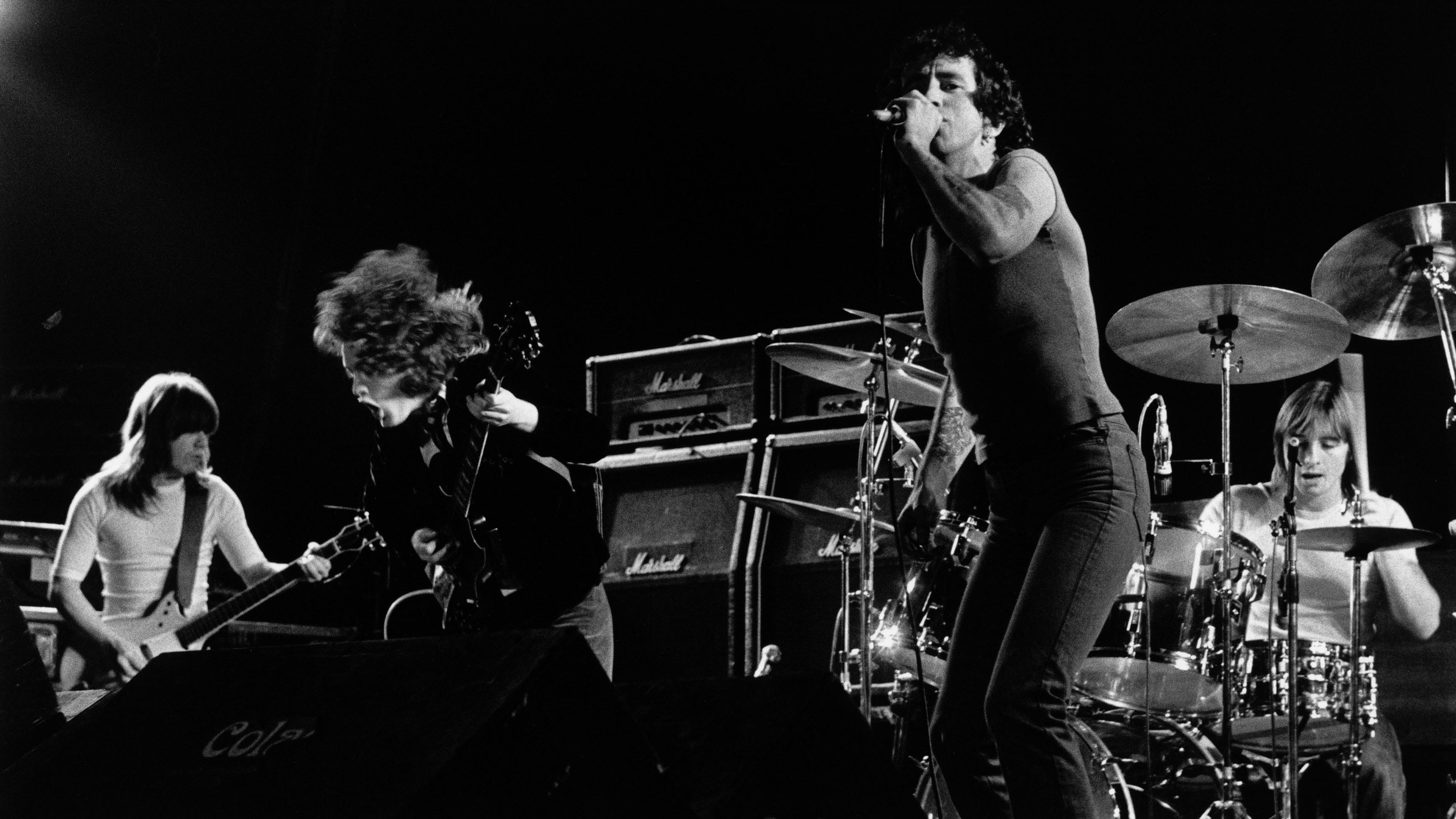
We should set our stall out from the get-go: if you’re into rock guitar in any of its myriad facets, it’s your duty to familiarise yourself with AC/DC. You might even be that rarest of player that hasn’t heard or doesn’t own any of their albums, or maybe you’re put off by the sight of a diminutive 65-year old man flailing about an enormo-stage dressed as a schoolboy, sweat-soaked Gibson SG in hand. We’re not judging, but if you are genuinely new to DC we suggest you seek out Back In Black followed in short order by Highway To Hell, two of the genre’s greatest albums. Take it from us; you’ll be entranced by both of them.
As with all pivotal bands, as AC/DC’s career has entered its twilight years so they have become something of a soap opera, with the unfathomable temporary removal of singer Brian Johnson and his replacement by, of all people, GN’R’s Axl Rose, and drummer Phil Rudd’s legal issues. There's been tragedy too; in 2014, of the band’s heart and soul, rhythm guitarist Malcolm Young, and the decision soon after by bassist Cliff Williams that enough was enough are just some of the tribulations the band has endured.
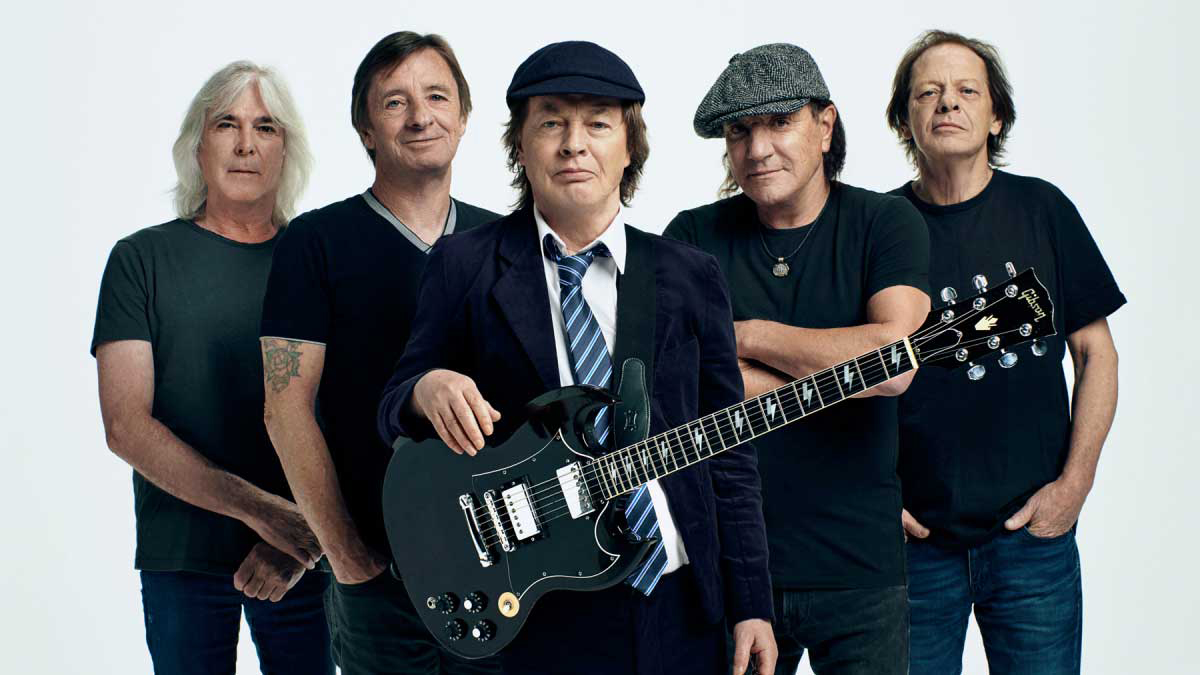
"Losing Malcolm, the thing with Phil and now with Brian, it's a changed animal.” Cliff said at the time, and he was probably right. “I feel in my gut it's the right thing [to do]."
However, with both Johnson, Rudd and Williams now back in the fold, the Youngs’ nephew Stevie Young continuing to curate Mal’s collection of battered Gretsch Jets and a new album (last year's Power Up) to devour, AC/DC are back, not that they ever really went away.
Their back catalogue is studded with gem after gem and here are just five tracks to get your teeth into.
1. Riff Raff – Powerage (1978)
Absolutely full to the brim with Angus’s immense clean yet dirty SG-meets-Marshall tone and showing the band’s bluesy roots, Riff Raff is arguably the stand-out track from an album that purists will state is their very best no matter how often others push Back in Black into their faces.
Preceded by a spluttering intro based around a combination of D/A and Dsus4/A chords played around the fifth fret, the slippery main riff is more challenging than you may anticipate with a dextrous pinkie finger required to reach the G on the D-string: how Angus could play it accurately whilst running around like a man possessed is beyond us.
Get the MusicRadar Newsletter
Want all the hottest music and gear news, reviews, deals, features and more, direct to your inbox? Sign up here.
He fills the lengthy solo sections with lick after muscular lick, some resembling Chuck Berry on a serious sugar high, others tipping their school cap towards the great Alvin Lee at his finger-knotting best, and all are full of an almost inhuman level of energy.
Powerage is also the first album to feature Williams on bass after his predecessor Mark Evans had one too many run-ins with Angus during DC’s stint supporting Black Sabbath on the European leg of the latter’s 1977 Technical Ecstasy tour.
With their live reputation having preceded them before they left Australia and the music now gaining similar levels of infamy, the stage was set for world domination. Their song constructions may be straightforward on paper but how the band can mix so much primal magic into even the simplest riff is a mystery, even to them.
“We just go on and play rock’n’roll with plenty of balls, plenty of meat, plenty of spontaneity. That’s our main thing.” Angus shrugged at the time. “What makes our set different is that we have good songs and we play ’em well. A lotta bands can play the basics but they can’t play with quality."
2. Have A Drink On Me – Back in Black (1980)
Coming from an idea demoed by original singer Bon Scott prior to his untimely death in February 1980 and with a subject matter that retains its poignancy considering what the devil’s juice ultimately did to the legendary frontman, the lyrics to Have A Drink On Me are full of the man’s humour. And the exemplary production from Mutt Lange allows you to hear every guitar and bass string to full effect.
The drums are immense too and, as with most DC songs, it’s based around a simple riff that’s somehow taken to a whole new level, still sounding fresh over 40 years later.
The tempo, close to the ideal 120 bpm, will instigate involuntary taps of the foot and bobs of the head in anyone who hears it and the monstrous chords just after the breakdown that follows the guitar solo, merely comprising changes between good old A, D, and G, are almost supernatural in their impact.
Bon played drums on the aforementioned demo and, as Angus told Ultimate Classic Rock, he offered his tub-thumping services when vying to the join the band back in the early seventies.
There’s nothing we can add to the thousands of words that have been written in praise of parent album Back in Back. One of the greatest of all time irrespective of genre, it’s sold over 40 million copies and, as we’ve suggested, it should nestle in the collection of every single rock guitarist out there. The fact that its conception, recording and release were all conducted against the backdrop of the tragedy of Scott’s demise makes its brilliance all the more incredible.
The rest is history and we can only guess at how the album would have sounded with the genial Scot Bon at the mic; not necessarily better, just… different.
3. Beating Around The Bush – Highway to Hell (1979)
The lively riff has often been compared to that of Fleetwood Mac’s Oh Well as played by Peter Green, and the chunky guitar tone cements Scott’s playful performance with lyrics that barely qualify as entendres at all, let alone double ones. Angus proves his chops are more than up to it during both solos by simply being able to keep up with the band without dropping a single smidgeon of feel, before a frenetic and drawn out ending brings things to a breathless close.
Highway to Hell saw the band finally making the transition to the really big time. They’d taken the difficult decision to part company with the established production team of elder brother George Young and Harry Vanda in favour of a hotshot South African named Mutt Lange who, by happy coincidence, was sharing a New York flat with Michael Browning, the band’s manager at the time. The resultant album is widely regarded as one of their very best, certainly with what is, in some circles, still regarded as the classic line-up; the sleeve design is up there with the rock’s most revered too.
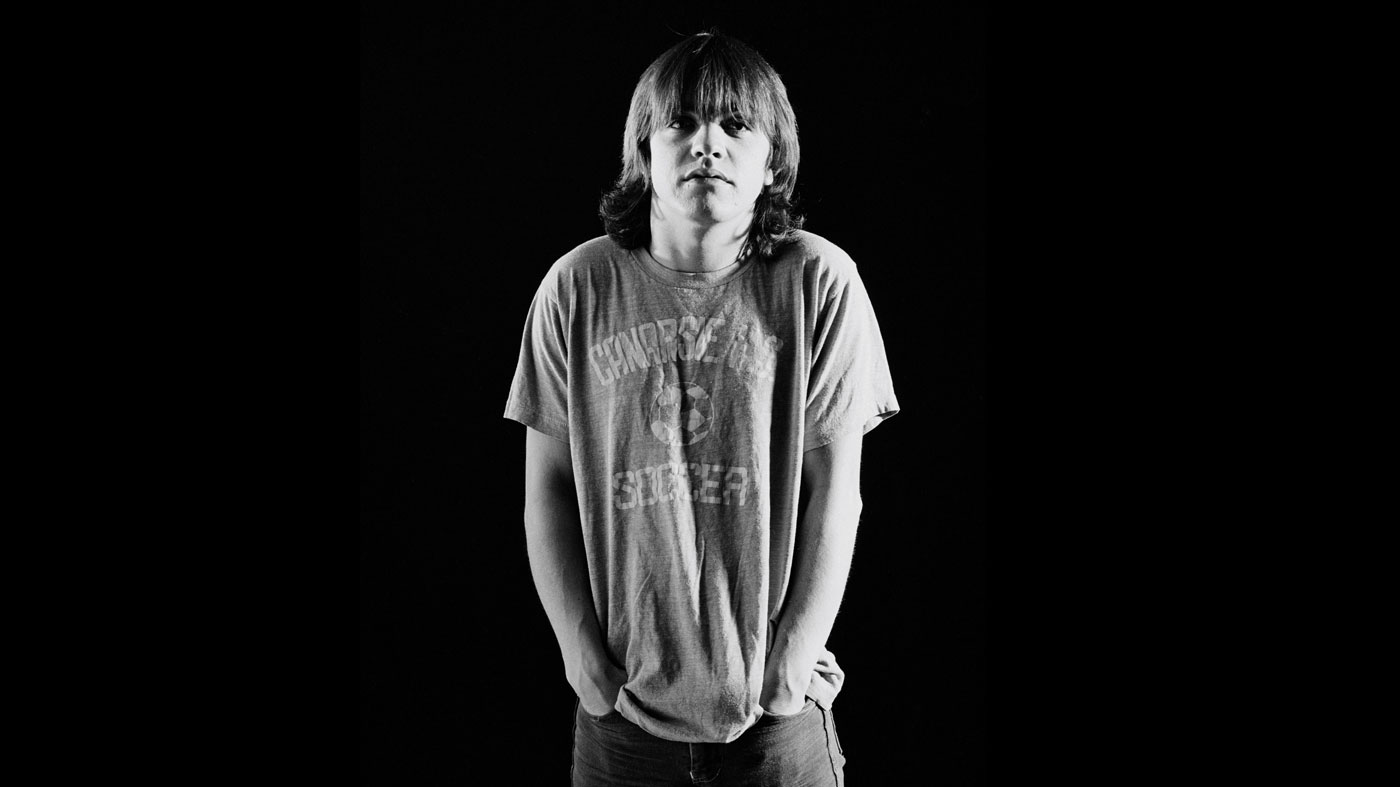
There’s so much to love about the running order, be it the seminal title track, the impossibly groovy Girl’s Got Rhythm or the near perfect Touch Too Much, and Beating…, certainly a less familiar offering, is notable for the fact that the trademark groove laid down by messers Williams and Rudd is still firmly intact during what is, for DC, a pretty swift song.
The success of Highway to Hell broke the band in America, but there were issues, at least to begin with, surrounding the title.
“As soon as we called the album Highway to Hell, the American record company immediately went into a panic,” Angus told Classic Rock. “With religious things, I thought everywhere was like Australia. There they call them bible-thumpers, and it’s a limited species. Christianity was never a popular movement. It’s that convict background!”
4. Guns For Hire – Flick of the Switch (1983)
The band’s much-maligned mid-eighties output is often overlooked in favour of the classics that had both gone before and were to come, but there are some worthy songs amongst the also-rans. Risible sleeve notwithstanding, 1983’s Flick of the Switch is a valid place to begin a search and in hindsight it seems a tad unfair that it should be compared, in commercial terms at least, to both Back in Black and 1981’s For Those About to Rock We Salute You.
Following such successes only AC/DC would elect to go back to basics and record the next album themselves, in the process, some would argue, not only killing the golden goose but throwing it on the barbie too.
Now bereft of Lange’s production polish Guns… is certainly down and dirty, with Angus’s stop/start intro punctuated by the unmistakeable hiss of amps running flat out before he produces an avalanche of pinched harmonics, running the edge of pick down the string for each note as the band kicks in. The vibe of the chords that slide towards the E beneath the chorus make it plain to see where fellow Aussie rockers Airbourne draw their mojo from.
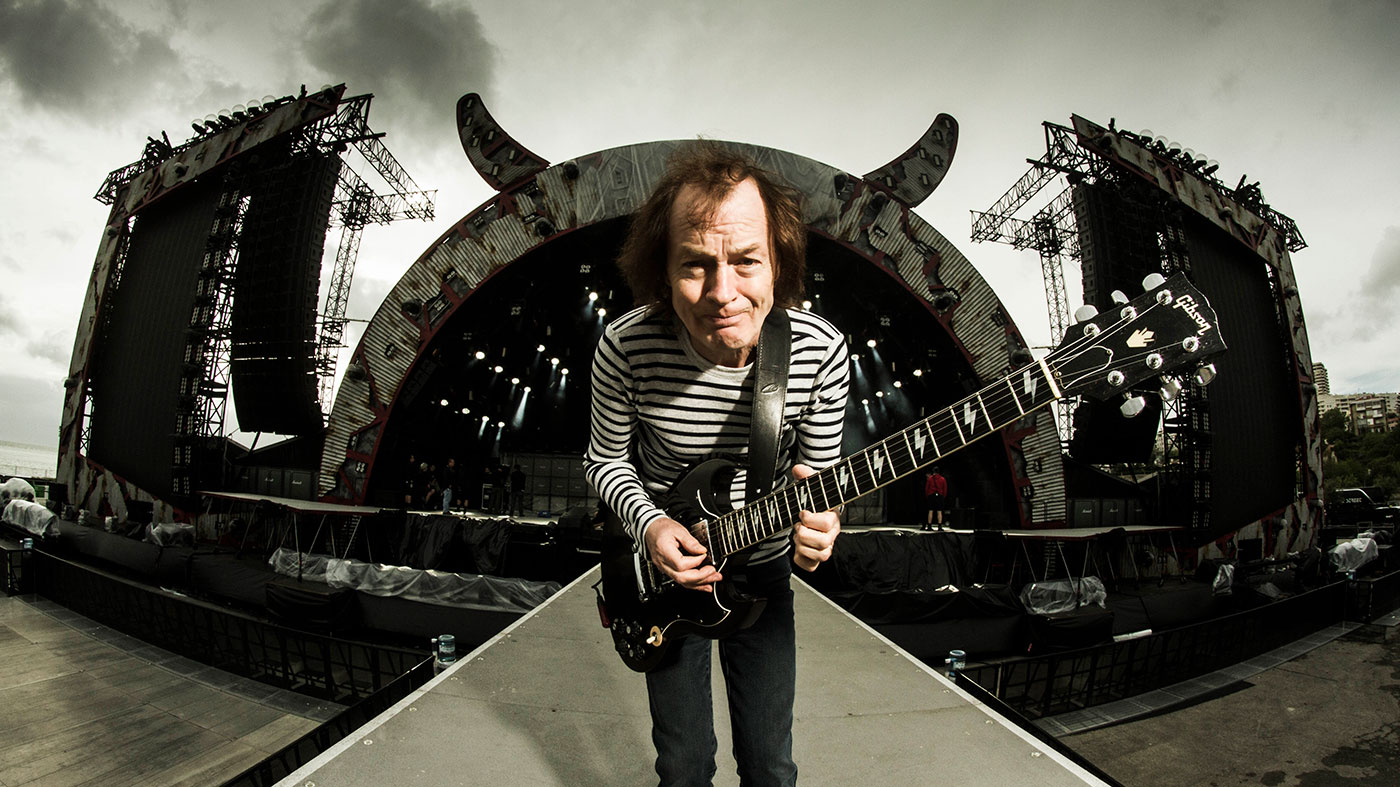
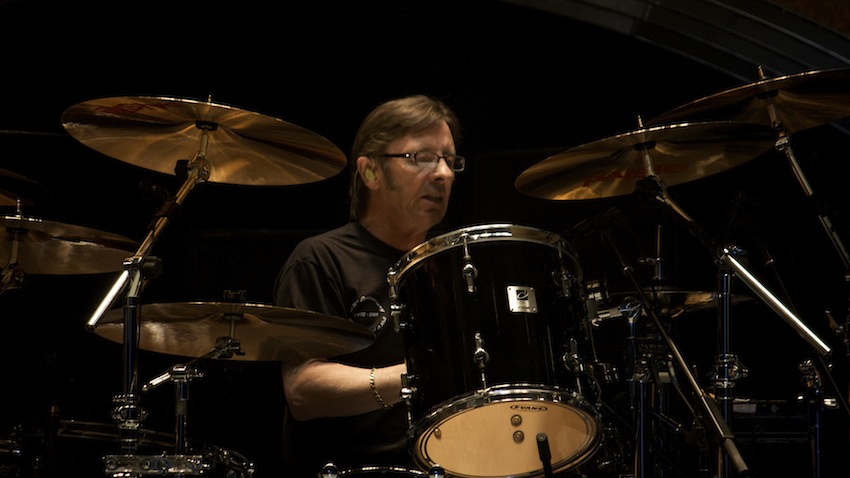
“Nobody was in the mood to spend another year making a record, so we decided to produce ourselves and make sure it was [as] raw as it could be.” Malcolm told Classic Rock in a rare interview in 2016. “We even had this very simple black-and-white line drawing on the cover, it was just pencilled on there. Everything about Flick Of The Switch was very basic.”
Once the album sessions were concluded Rudd was replaced behind the kit by Englishman Simon Wright for the ensuing world tour tour. Interestingly he was recruited via an ad in a music paper that simply read, in typical DC style, 'Drummer wanted. If you don't hit hard, don't apply’, but this was just the start of the band’s ‘troubles with Phil’.
“Malcolm had got into an extremely heated personal disagreement with Phil in Nassau,” wrote Classic Rock’s Ben Mitchell in 2016. ). “This run-in with AC/DC’s fun-sized guv’nor abruptly left him free to explore new career opportunities.”
Rudd rejoined in 1995 for the Ballbreaker album and has had all sorts of issues more recently, including a drug conviction in 2010 and a charge of ‘attempting to procure murder’ in 2014. Despite all of this, his drums have formed the backbone of some of rock’s greatest tunes and it’s hopefully this that will prove a more savoury legacy.
5. Thunderstruck – The Razor’s Edge (1990)
At the turn of the nineties our heroes were in a disarray of sorts. Wright left to hook up with Dio, Malcolm had been forced to address ongoing alcohol issues and was temporarily replaced by Stevie Young to cover touring commitments, and even singer Brian Johnson had had to take time out to deal with family problems. As ever, when the going gets tough, the tough... well, you know, and with a reinvigorated Mal back in the fold and platinum-tinged producer Bruce Fairbairn at the desk, the Youngs came up with an album that showed all the signs of a band retuning to former glories, shifting five million copies in America alone.
Thunderstruck is both its lead track and lead single and it’s testament to Angus’s skills that he can play the skittery riff, all plucked strings and pull offs, for over 90 seconds without wavering one iota from the beat. Try it with a metronome and see how you do; it’s really not easy. In the studio Angus reportedly muted every string on his SG except for the B with tape to aid the take’s accuracy but he could certainly do it live too, and when the chorus kicks in after the unbearably straining build up, the release is almost primal.
“Bruce Fairbairn is a real gentleman. He knew what we wanted to do and was happy to ride with us.” Malcolm told us. (https://www.loudersound.com/features/ac-dc-malcolm-young-the-lost-interview) “We wanted to hear every single instrument on that record and have the overall sound right in your face. What we didn’t want was one of those American mixes with eight guitar overdubs, but Bruce seemed to give the band a modern sound without watering us down.”
6 songs guitarists need to hear by… Iron Maiden
Simon Bradley is a guitar and especially rock guitar expert who worked for Guitarist magazine and has in the past contributed to world-leading music and guitar titles like MusicRadar (obviously), Guitarist, Guitar World and Louder. What he doesn't know about Brian May's playing and, especially, the Red Special, isn't worth knowing.
“Every note counts and fits perfectly”: Kirk Hammett names his best Metallica solo – and no, it’s not One or Master Of Puppets
“I can write anything... Just tell me what you want. You want death metal in C? Okay, here it is. A little country and western? Reggae, blues, whatever”: Yngwie Malmsteen on classical epiphanies, modern art and why he embraces the cliff edge









